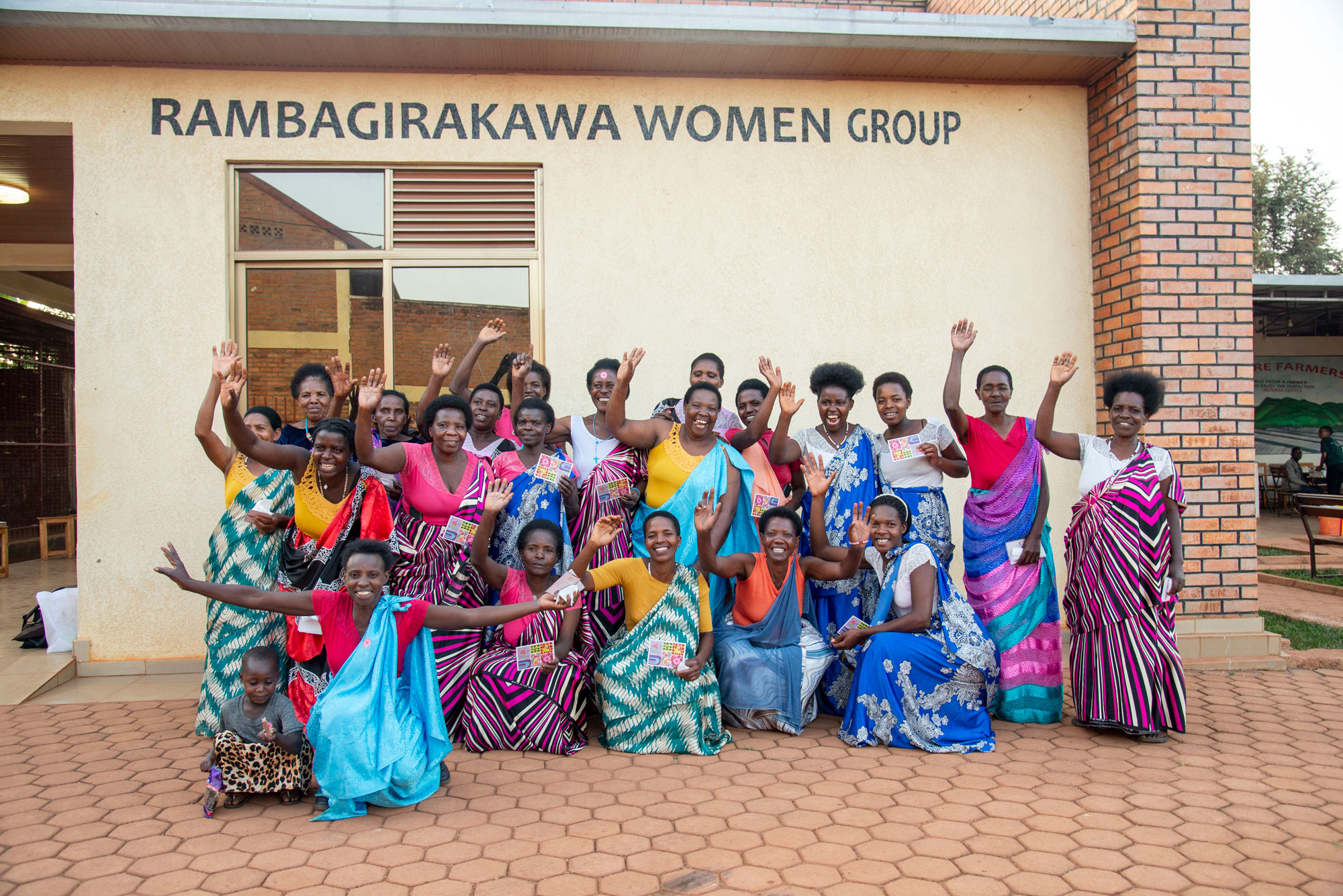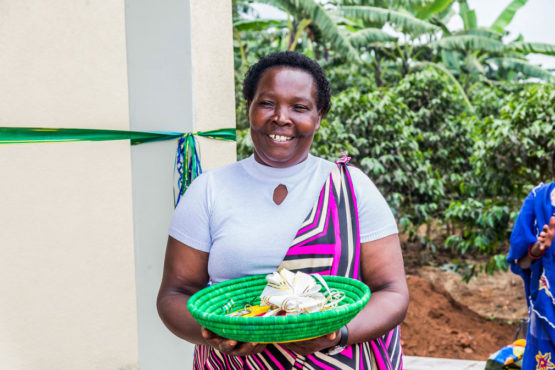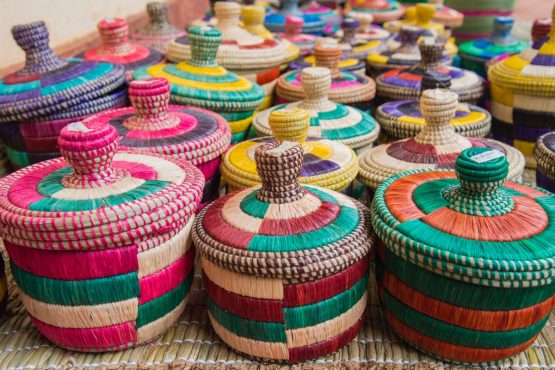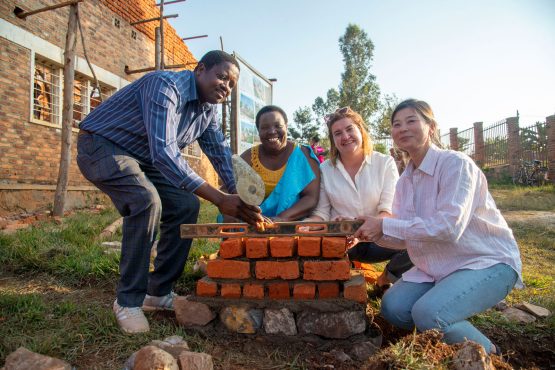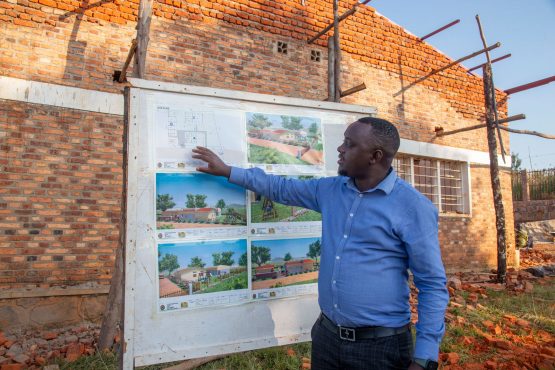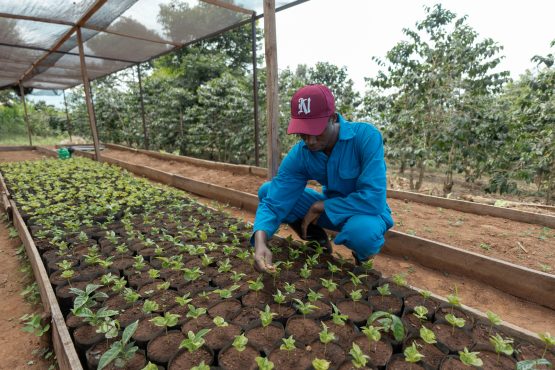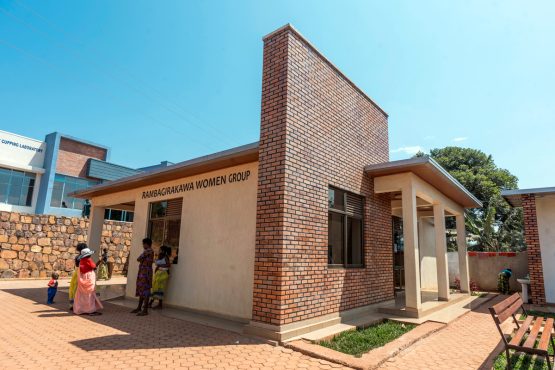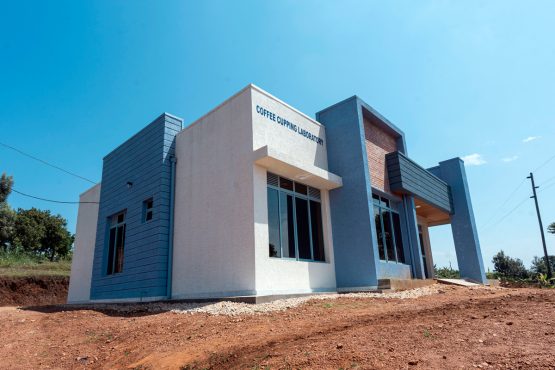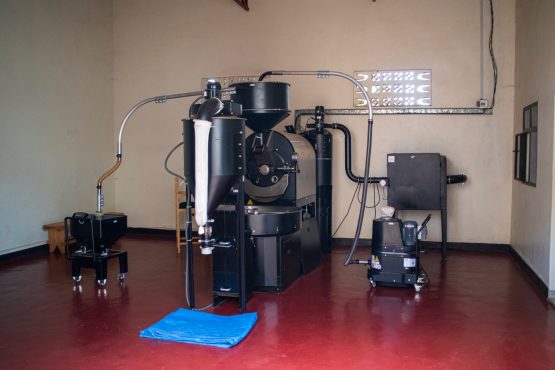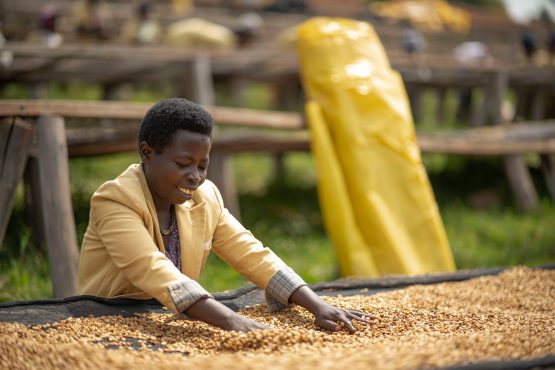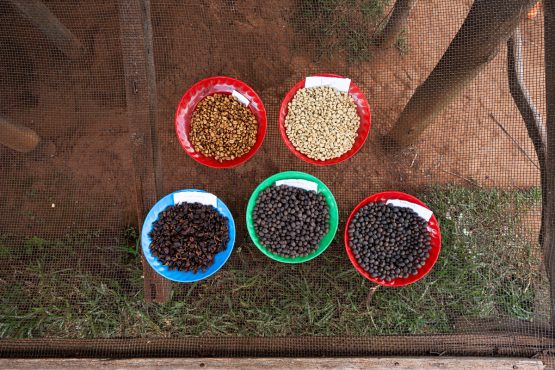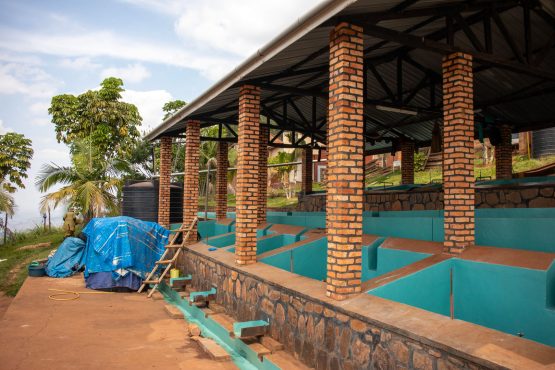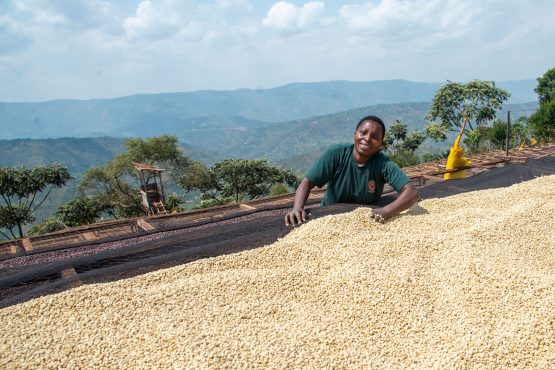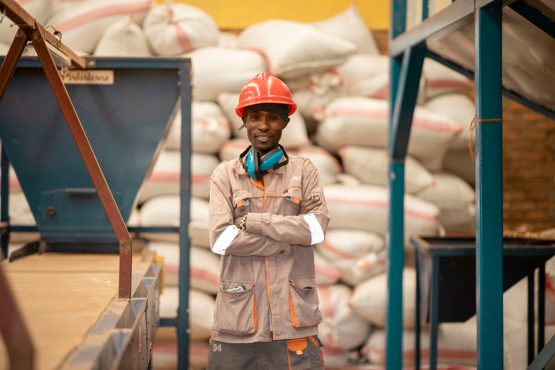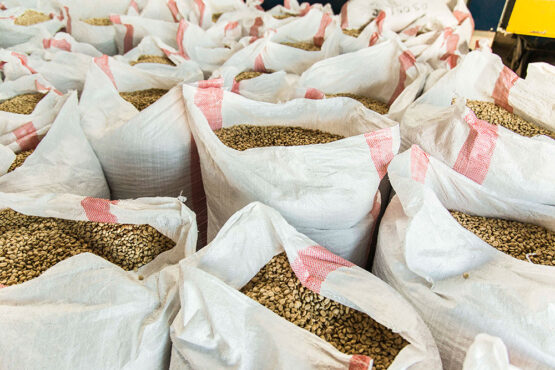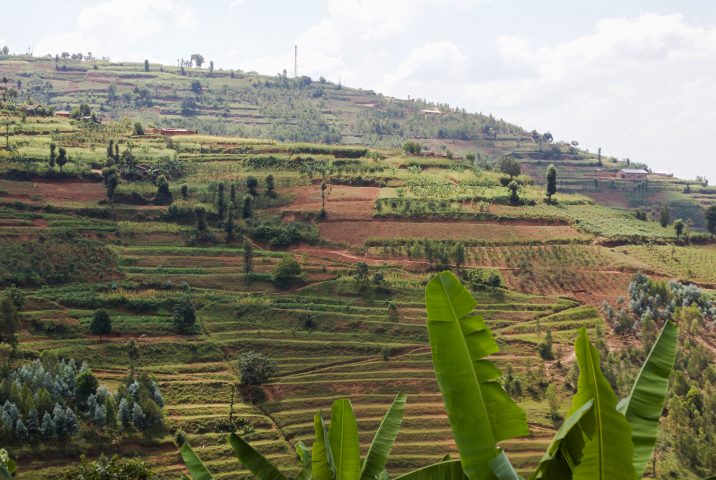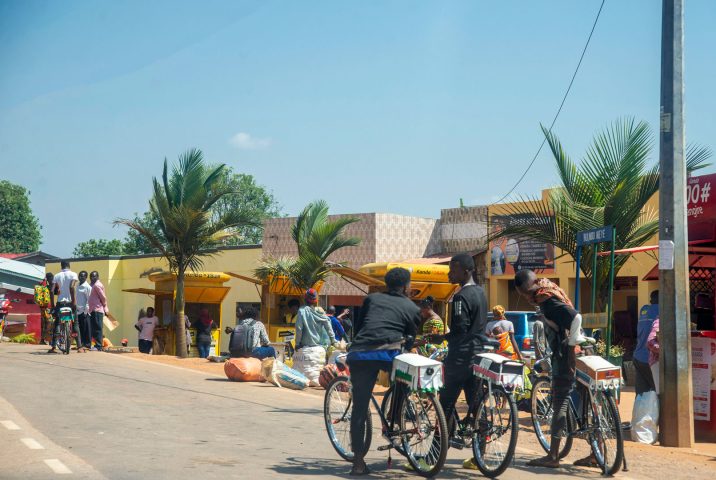Ruli Women’s Coffee
Great sweetness and depth, with maple syrup, cherry and blood orange. Long and balanced.
This special microlot was produced by 70 female farmers who own and grow coffee on small farms in the hills surrounding Ruli washing station, located in the Ruli Sector of Gakenke District, in Rwanda’s rugged and mountainous Northern Province. The women are members of the Dukunde Kawa Cooperative, who own and manage Ruli washing station, along with two other nearby washing stations.
Many of the women who contributed to this lot are also members of Rambagirakawa, a women’s alliance within Dukunde Kawa that was formed to advocate for support and resources for female coffee producers. Through collaboration with both Rambagirakawa and international buyers, Dukunde Kawa has assisted the women in processing and marketing their coffees as a separated ‘Women’s Coffee’ lot, which earns them an additional bonus payment on top of the quality premium all Dukunde Kawa members receive.
To distinguish their coffee and ensure it is processed separately, the women have organised to deliver cherry to the washing station on certain days of the week. While this lot was processed at Mbilima washing station, members of Rambagirakawa may also deliver to its sister washing stations, Ruli and Nkara, depending on their location.
Many of the founding members of Rambagirakawa were widowed by the 1994 genocide and relied upon each other for farming and financial advice. The group is now open to all of the female members of Dukunde Kawa and has grown to 304 members. Some 70 women contributed to this lot. Besides selling their coffees as separated lots, members have wholeheartedly pursued additional income opportunities, like basket weaving and embroidery, to develop greater independence both economically and socially. The result is an empowered and ambitious alliance of women, whose ever-expanding activities focus on creating opportunity and success for the women and children in their community.
ABOUT RULI WASHING STATION
Ruli sits at 1,920 meters above sea level, overlooking a beautiful landscape of rolling green hills and rich, red earth. A total of 1756 farmers (1104 men, 652 women) deliver cherry to the washing station throughout the season, which employs 36 permanent staff and increases by another 148 seasonal staff during the harvest period. The area surrounding Ruli has mineral-rich soil and a lush environment that is well suited to specialty coffee production. Typically, farms are situated between 1,800 to 2,100 meters above sea level.
The producers who contribute to the Ruli washing station own an average of one third of a hectare of land, on which they farm coffee, along with subsistence food crops like maize, beans and sorghum and some livestock like goats and chickens. Cows are also an important asset to a farming family. Besides having practical advantages – like providing milk and yoghurt to feed the family, producing excellent manure for the coffee farms, and being an opportunity for additional income – they are also a traditional symbol of wealth and status in Rwanda.
The washing station was established in 2003 and is the largest of Dukunde Kawa’s washing stations. It serves as the head office for the cooperative’s management team and the site also encompasses the cooperative’s dry mill and its dairy operations. The property is also the site of the Rambagirakawa community room and Dukunde Kawa’s cupping lab, nursery and model farm. Recently, the cooperative decided to expand their business by establishing a commercial roastery that supplies coffee to restaurants and hotels across town, with all activities carried at a building also located in Ruli.
Quality control operations at Ruli are overseen by Emerthe Mukamurigo, who has held this position since 2014, while the day to day is managed by Philomene Nyirabantu. Ruli is Rainforest Alliance certified, UTZ certified, and Fair Trade certified. These certifications help the growing cooperative find different markets for the coffee. “We were already doing a lot of the things that were required for these certifications”, Isaac (the executive secretary of the cooperative at the time) explained, “We are always trying to be the best cooperative we can be. Getting the certifications has helped highlight what we are doing well and helped us raise our standards in other areas.”
Head here to learn more about the work of Dukunde Kawa in Rwanda.
PROCESSING AT RULI WASHING STATION
The team at Dukunde Kawa takes a huge amount of care in processing its coffee. All members of the cooperative are trained to only select ripe coffee cherries from their trees.
- On delivery, the cherries are inspected and sorted by hand to ensure only the very ripest cherries are processed. Farmers do the selecting, and receive the highest income from the ripest, healthier fruit. The remainder of their crop still gets purchased by the co-op, at a lower price, to be processed and sold for the internal market.
- Cherry is then sorted by weight (and any floaters are removed) by a Pinhalense machine that the washing station staff affectionately have named the ‘Umupolisi’ (police person). By using a machine, rather than a clerk, Dukunde Kawa are more transparent with contributing growers about which fruit gets processed. Coffee is then pulped on the same day – usually in the evening – using a mechanical pulper that divides the beans into three grades by weight, with the heaviest, A1, usually having the highest cup quality.
- After pulping, the coffee is pre-washed and fermented overnight for around 12–18 hours and then graded again using floatation channels that sort the coffee by weight. The wet parchment is the washed a second time and left to ferment for a further six hours — with the goal of removing as much mucilage as possible without using machinery that may accidentally crush or damage the beans.
- As with most washing stations in Rwanda, women do the majority of hand-sorting. This takes place in two stages – on the covered pre-drying tables and on the drying tables. Washed beans are moved from the wet fermentation tanks onto the pre-drying tables, where they are intensively ‘wet sorted’ under shade for four hours. The idea is that greens (unripe beans) are still visible when the beans are damp, while the roofs over the tables protect the beans from the direct sunlight.
- Next, the beans are moved onto the washing station’s extensive raised drying tables (‘African beds’) for around two weeks, where they are sorted again for defects, turned regularly and protected from rain and the midday sun by covers, ensuring both even drying and the removal of any damaged or defective beans. During this period the coffee is also turned several times a day by hand to ensure the coffee dries evenly and consistently.
- After reaching 11-12% humidity, the coffee is then transported to Dukunde Kawa’s purpose-built warehouse prior to final dry-milling and hand sorting at the cooperative’s dry mill.
- Located in Ruli, Dukunde Kawa’s dry mill has the capacity to process one full container of coffee a day — and combines the use of technology with meticulous hand sorting to ensure only the best beans are bagged. Before being loaded for export, Rwanda’s National Agricultural Export Development Board also inspects and samples the prepped parchment.
WHY WE LOVE IT
Coffees from this area are sweet and complex, with exceptional character. We love supporting the women of Ruli washing station by featuring their coffee as a separate lot. This year’s lot is intensely sweet, with blood orange and cherry.
We feel so lucky to work with Dukunde Kawa. When we first started working with the cooperative over a decade ago, the president at the time, Anastase Minani, explained that their goal was to be the very best cooperative in Rwanda. We think they’re well on their way to achieving this goal, and we are excited to have shared the journey with them.
